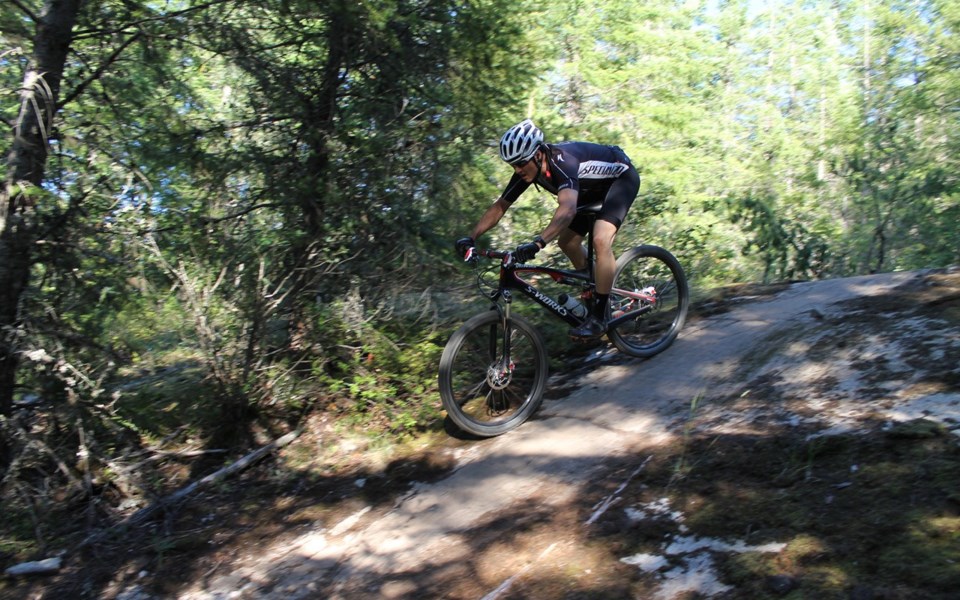The Whistler Off Road Cycling Association (WORCA) will have some extra funds to work with in each of the next two years.
At the Feb. 12 council meeting, Whistler's mayor and council approved $120,000 in Fee-For-Service (FFS) funding for the organization in each of 2019 and 2020 (pending approval of the municipal budget).
The figure isn't quite the $150,000 per year in base funding WORCA estimates it takes to maintain its trails, but it's a big boost from the $50,000 per year the group received from 2016 to 2018.
The original recommendation from staff was for a new FFS agreement worth $53,060 in 2019 and $54,121 in 2020, until Mayor Jack Crompton introduced an amendment for the additional funding.
Speaking before the meeting, WORCA president Dale Mikkelsen said the group would be hard-pressed to maintain its standards under the proposed funding amounts.
"Our objective with the ask for $150,000 was not only to maintain the trails, but to bring all of the trails over the next three years up to a really durable, sustainable standard," he said. "At $50,000, I'm pretty firmly convinced that WORCA won't be able to even maintain trails to the existing condition they're in."
With a good contingent of WORCA members in the audience, council opted to increase the funding after a healthy discussion.
Councillor Cathy Jewett, noting she's been a WORCA member since it started and means no disrespect to the work the group does, suggested a smaller amount.
"My feeling is, in the interest of supporting all the other organizations that we support with FFS, that we be a little bit more conservative, and I was thinking about $100,000," Jewett said, in proposing an amendment to Crompton's amendment (that was eventually defeated).
Despite some big asks for increased funding, in renewing previous FFS agreements with other organizations in February 2018 (Whistler Animals Galore, Arts Whistler, the Whistler Museum and Archives and the Whistler Chamber of Commerce), the Resort Municipality of Whistler (RMOW) kept all increases to two per cent annually to "manage expenditures and ever-increasing cost of services."
But WORCA's ask is supported by its community contributions, said Coun. Jen Ford.
WORCA presented to Whistler's Committee of the Whole on Jan. 8, outlining the group's increasing annual spend (more than $100,000 per year) and the fact that other similar-minded communities have recently passed Whistler in terms of support.
There's also the Sea to Sky Mountain Biking Economic Impact Study released in 2017, which found WORCA-maintained trails generated more than $13 million in initial expenditure and nearly $16 million in industry output (see Pique, Jan. 14).
"I don't think anyone at this table disagrees that we get exceptional value from the work that WORCA does within our community, and they make that money go really, really far with the volunteer hours and with the innumerable number of people that commit their time to the trails of our community," Ford said.
But it would be advantageous to have a master plan with an inventory of all trails in the valley, along with a breakdown of what needs repair and maintenance, said Coun. Arthur De Jong.
"Certainly from an environmental standpoint I think it's imperative we make sure that this money is solely there to repair an existing trail system, potentially deactivate trails that should not have been built, and certainly not build more until we have clarity of a comprehensive master plan," De Jong said. "I have huge respect for WORCA; they're part of the backbone of our community and backbone of our recreational development. The municipality wants to support you; we have to steward every dollar while we do that with you."
There are potential synergies to explore with the RMOW's Forest and Wildland Advisory Committee, Trails Planning Working Group and WORCA, Ford added.
"We really do need to understand how many trails is enough, we need to understand the carrying capacity of the forests, and all of the trail network, and really look at that in the context of wildfire management and creating the breaks and FireSmarting our community," she said.
Crompton appreciated the conversation from the council table, noting the recurring theme of shared planning between trail groups and a collaborative trails master plan.
"Conversations about deactivated trails, conversations about where our resources are best spent, I think are very important," he said. "I think there's some expectation and hope from our table that what happens going forward is a real effort to get our organizations together, and our plan together, and move in a real collaborative and coordinated direction together.
"I'm enthusiastic about the work that is involved."
-with files from Dan Falloon




